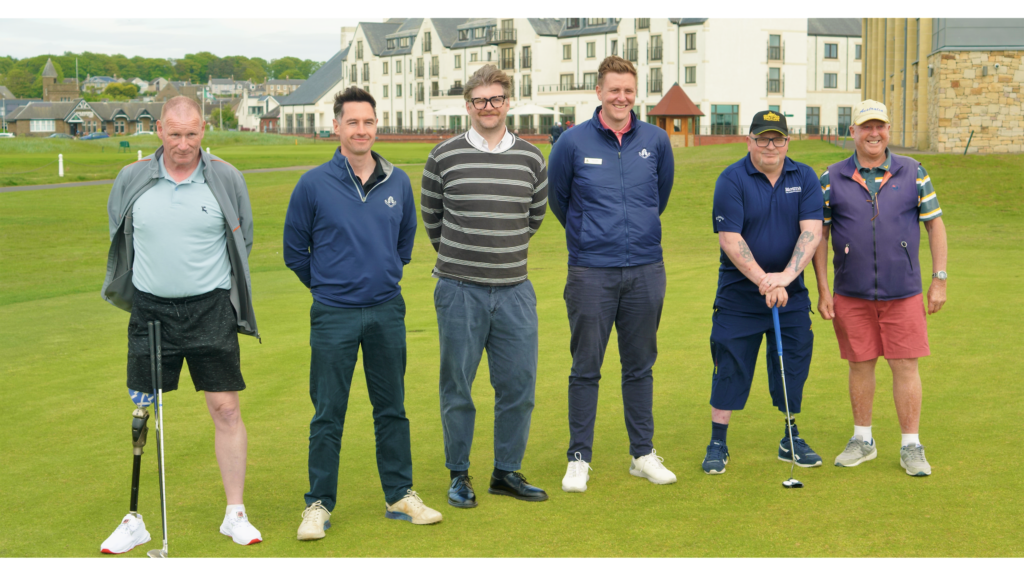Golfers with disabilities are being invited to take part in a new academic study aimed at gathering insights into the sport’s effect on quality of life and life satisfaction.
Abertay University in Dundee, Scotland has partnered with EDGA to launch the international survey for golfers with a disability, which will be distributed to golfing and disability support organisations across the globe.
EDGA is the leading association for golfers with a disability, providing advice, guidance and standards to major golfing bodies including: The IGF, The R&A, the European Tour Group and the EGA. Its membership of 39 national federations has grown beyond those in Europe to include: Golf Australia, New Zealand Golf, The Indian Golf Union, The Argentina Golf Association, Golf South Africa, The Israeli Golf Association, The Lebanese Golf Federation and Golf Canada.
The research project, which will be led by Abertay’s Division of Sport and Exercise Sciences, will undertake an in-depth analysis into the lives of people who engage in golf for the disabled (G4D).
In addition to recording data on physical activity levels, quality of life, life satisfaction and general health, the study will gather information on social and economic factors, as well as measures of anxiety and depression.
The study was launched at Carnoustie Golf Links in Scotland on Tuesday 23 May and is the latest project to be undertaken at the Carnoustie Golf Links Research Hub, which was developed in partnership with Abertay University.
Carnoustie Golf Links already foster close ties with the G4D movement through Scottish Disability Sport and Dundee Dragons Wheelchair Sports Club, offering specialised Golfers with Disabilities coaching sessions led by PGA Professionals.
Ashley Williams of Abertay University’s Division of Sport and Exercise Sciences said: “The G4D movement is growing across the world, but we still need to better understand the impact that taking part in the sport can have on participants. We are delighted to be partnering with EDGA on this important work to develop a more in depth understanding of the ways in which golfers with disabilities engage with the sport, and the potential benefits which can be derived from that engagement. Abertay’s goal is to produce research that can have impact in the real world, and we hope that the data gained from the survey can be used by disability sport organisations worldwide.”
Dr Tony Bennett, President of EDGA said: “The evidence we have to date clearly points to golf being good for the health and wellbeing of golfers around the world. We also know that individuals with disabilities are generally less active than their non-disabled counterparts but a significant number want more activity and sport in their lives. The nature of golf allows people with a wide range of disabilities to participate in the game due to using their own ball, which is stationary. EDGA is delighted to partner with Abertay University to gain further insights on to the effects of golf on quality of life and life satisfaction.”
Michael Wells, Chief Executive of Carnoustie Golf Links said: “Carnoustie Golf Links have always been an accessible golfing venue. From as far back as the 17th Century, when, most often women were not even allowed onto golf courses, Carnoustie was doing things differently, encouraging a thriving female golfing community. This inclusive and progressive attitude continues to this day, with an emphasis on making the game of golf, with all its health and wellbeing benefits, available to anyone who wants to get involved.
“We’ve always been very keen to break down real and perceived barriers into the game, and by working with Abertay University, we’ve been able to conduct important and valuable studies which have helped us to make our golf development programmes even more accessible. This new study will further our knowledge and understanding of how golf can benefit golfers with disabilities.”
Joe Muir, parent of a young golfer who attends classes at Carnoustie said: “The golf tuition is the highlight of our son’s week. He has learned so much and the golf professionals and fellow golfers treat him as an equal. We appreciate how the golf professionals understand and adapt to his difficulties – we are all very grateful for the boost to his confidence that being part of the group gives him.”

